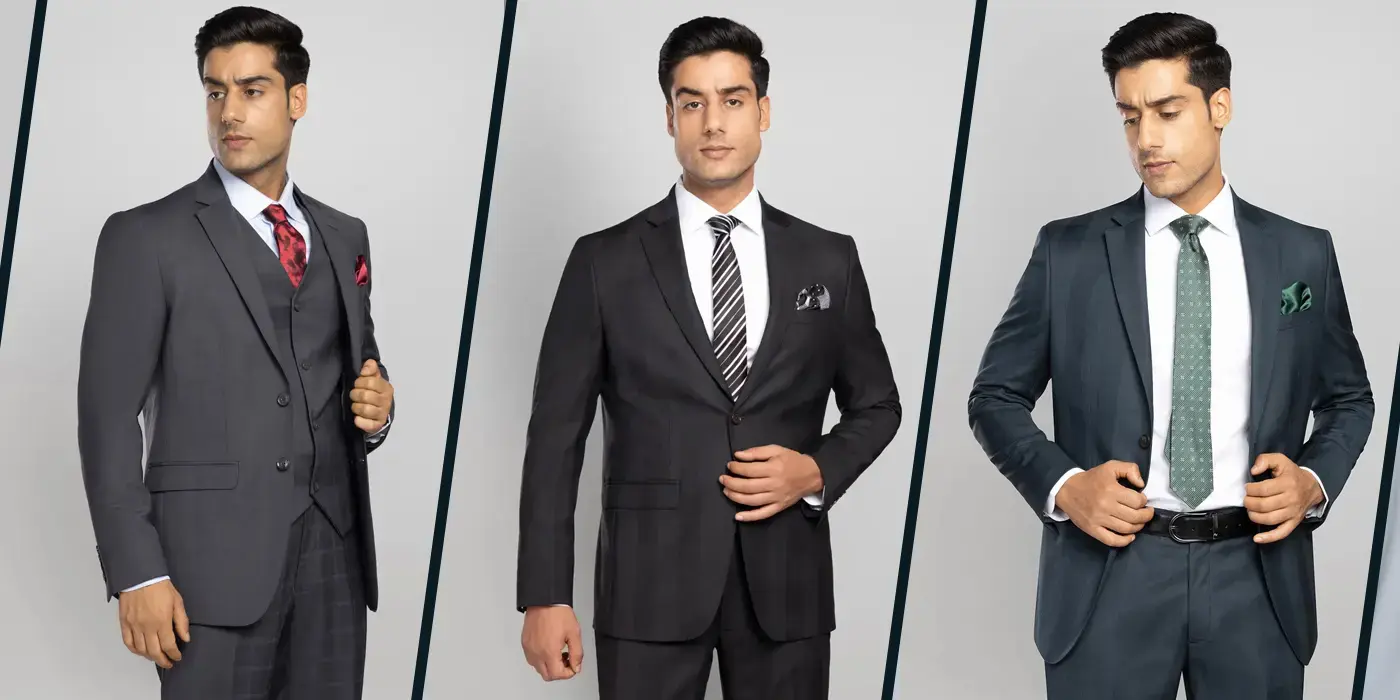Have you ever noticed how slipping into a sharp suit instantly changes how you carry yourself? You stand a little taller, speak with more assurance, and, even before saying a word, you command a different kind of attention. This isn’t just a fashion fluke; it’s the fascinating intersection between clothing and psychology.
Our attire doesn’t simply reflect who we are, it influences how we think, feel, and behave. It also affects how others see us. Among all types of clothing, the suit holds a unique place. It is more than just a uniform or formal wear, it’s a symbol of professionalism, control, and dignity. It’s also one of the few pieces of clothing that can completely transform not just a look, but a mindset.
In this guide, we’ll explore the psychological power of suits, how they affect self-perception, shape first impressions, and influence the way others respond to us. We’ll also dive into why craftsmanship, fit, and detail matter, and how the right suit, a tailored or bespoke one, can do more than upgrade your wardrobe; it can enhance your confidence and presence in every room you enter.
So, what is it about suits that makes such an impact? Let’s find out.
The Power of First Impressions
Why Appearance Matters
We’ve all heard the saying, “You never get a second chance to make a first impression.” As cliché as it sounds, it’s grounded in real psychology. Studies show that people form opinions about you within the first seven seconds of meeting. And a large part of that judgment comes down to how you look, your grooming, posture, and of course, your clothing.
When you walk into a room wearing a sharp, well-fitted suit, something changes. You immediately convey traits like discipline, professionalism, and respect. People subconsciously associate suiting with leadership, competence, and trustworthiness.
This isn’t about vanity, it’s about visual cues. Humans are wired to assess quickly for safety, status, and relatability. Clothing becomes a kind of shorthand communication. In professional settings especially, a suit signals that you’re serious, prepared, and present. It shows that you took the time to put yourself together, and that, in turn, often influences how others will treat you.
It’s not about being flashy. A modest, thoughtfully styled suit can have just as much, if not more, impact than something expensive and loud. It’s the intentionality that speaks.
Suiting and Social Contexts
Context matters, but so does how we carry ourselves within it. A suit worn to a job interview can subtly tip the odds in your favor. At a wedding, it communicates respect for the occasion. During a presentation, it adds weight to your words. The way you dress tells people how you view the moment, and how you expect to be received in it.
There’s also a psychological effect known as “mirroring” . People tend to reflect the energy and tone of the person in front of them. When you dress with confidence and purpose, you’re more likely to receive responses that mirror those same qualities: respect, openness, and engagement.
Interestingly, this effect holds even in more casual environments. In creative industries or informal settings, a modern suit styled with ease (think rolled sleeves, open collar, clean sneakers) can bridge the gap between sharp and approachable, still sending a message of polish without stiffness.
Ultimately, dressing sharp isn’t about impressing everyone. It’s about honoring yourself and the situation you’re stepping into. A suit just happens to be one of the clearest ways to say: “I’m here, I’m ready, and I respect this moment.”
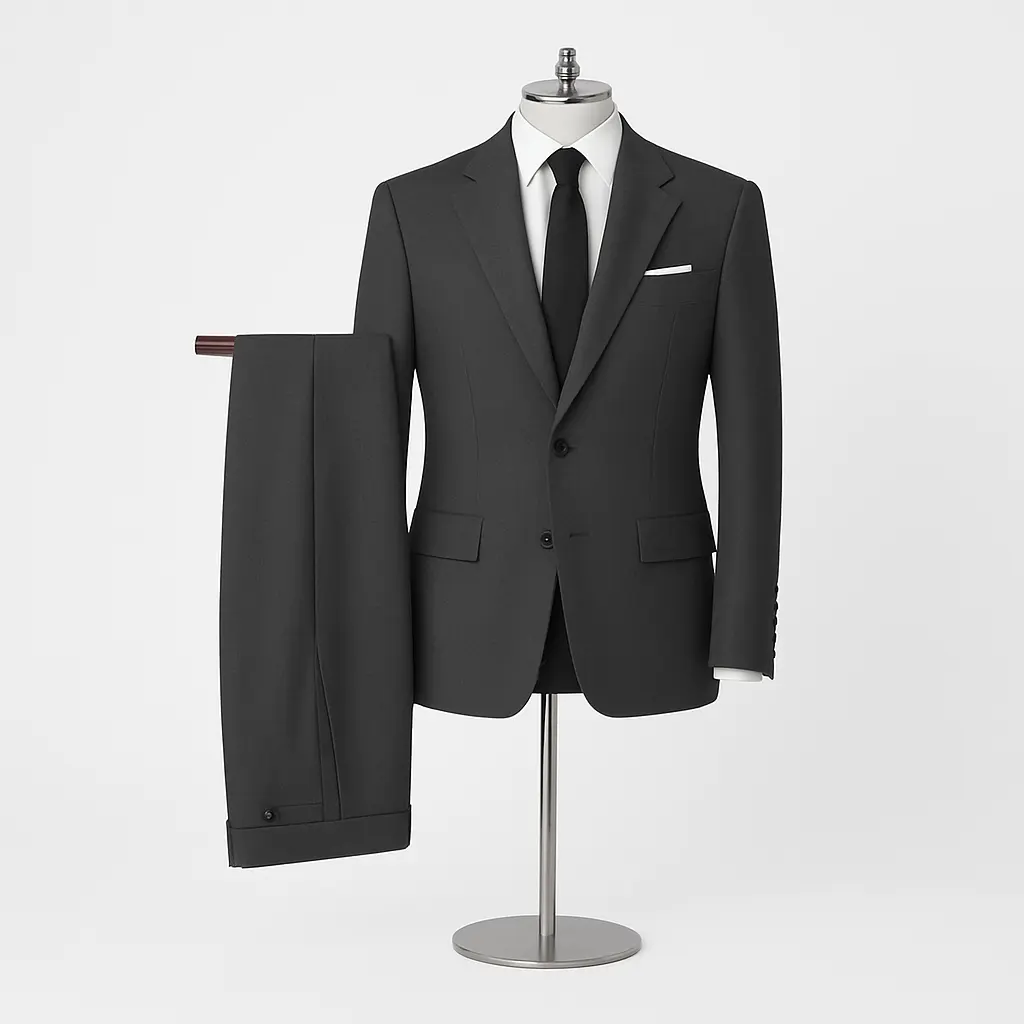
Confidence and Self-Perception
“Enclothed Cognition” Explained
Have you ever worn something that instantly made you feel more capable? That’s not just in your head; it’s science. Psychologists call it enclothed cognition; a term that describes how clothing influences our mental processes and behavior.
The idea is simple: what you wear can subtly shift your mindset. When you put on a tailored suit, you’re not just wearing fabric, you’re stepping into a role. The structure of the jacket, the precision of the tailoring, even the way the shoulders sit and the pants break, all of it sends a message to your brain: “You’re sharp, in control, and ready.”
This is why so many people report feeling more focused, assertive, and professional when suited up. In fact, studies have shown that individuals wearing formal attire tend to perform better in tasks requiring abstract thinking, negotiation, or leadership. It’s not magic; it’s mindset.
Wearing a suit creates a psychological shift. Your behavior changes because your environment, starting with what you’re wearing, tells you to act differently.
Dressing for Inner Confidence
The confidence boost from a well-fitted suit goes beyond external validation. It’s not just about how others see you, it’s about how you begin to see yourself. You start walking straighter, speaking clearer, and making eye contact with more certainty.
This is where the impact of a tailored suit becomes especially powerful. When a suit hugs your shoulders just right or frames your waist perfectly, it does something to your self-esteem. It tells you that you are worthy of craftsmanship and detail, that your presence matters.
And it’s not reserved for special events. Incorporating sharp, intentional dressing into your daily life, like wearing a blazer to a meeting or a fitted pair of slacks instead of sweatpants, can quietly transform how you approach your goals, conversations, and self-worth.
Here’s the truth: confidence isn’t always loud. Sometimes it starts with a quiet awareness of how good you feel in your own skin, and in your own suit.
Real confidence grows when you dress not just for how you want to be seen, but for how you want to feel.
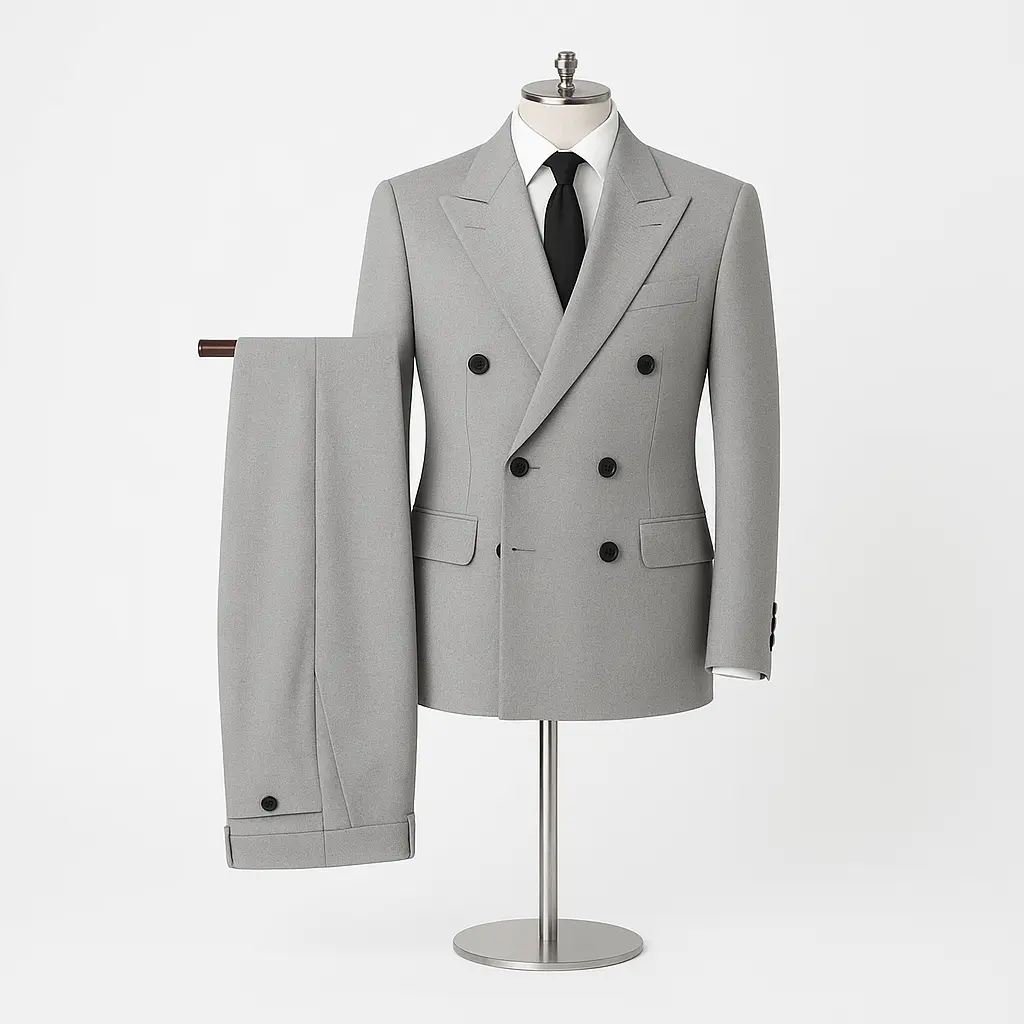
What Makes a Suit Psychologically Impactful
The Role of Fit and Tailoring
There’s no quicker way to undermine the power of a suit than wearing one that doesn’t fit. A suit that’s too baggy, too tight, or poorly structured can make even the most expensive fabric look ordinary and worse, it can make you feel ordinary.
This is why tailoring is non-negotiable. A tailored men’s suit doesn’t just look good; it feels right. It complements your frame, improves your posture, and moves with you. When you wear a suit that’s been made or adjusted with your unique measurements in mind, it subtly reminds you: You’re worth the detail.
The psychological impact is profound. Good tailoring gives you presence; it signals that you pay attention to details, respect yourself, and value quality. That kind of silent message doesn’t just affect others; it builds internal assurance with every step you take.
Fabric, Color, and Design Influence
Beyond fit, the fabric and color of a suit play a quiet but powerful role in perception. Lighter colors often project approachability and modernity, while darker hues suggest formality, authority, or mystery. Meanwhile, the texture of the fabric; like wool, velvet, or linen, can communicate subtle mood and occasion cues.
The best suit design isn’t necessarily the flashiest. It’s the one that aligns with your personality and purpose. A classic navy suit with subtle pinstripes might be perfect for the boardroom. A soft grey, unstructured suit might be ideal for a creative or relaxed setting. Double-breasted or single? Peak lapel or notch? These small choices all speak volumes.
When you consciously select these elements, you’re crafting more than an outfit, you’re creating a message. That intentionality enhances how grounded and confident you feel wearing it.
The Emotional Investment of a Bespoke Suit
There’s something undeniably special about investing in a bespoke suit, a garment created just for you. From the first measurement to the final fitting, the process is personal. You’re involved in every step, choosing the lining, the lapels, the pockets, the buttons. It’s a collaboration between you and the artisan.
But beyond the customization, a bespoke suit carries something deeper: emotional ownership. You remember how it was made. You remember the first time you wore it. And because of that, it often becomes more than clothing, it becomes a memory, a signature, a second skin.
This emotional connection adds to the psychological impact. You don’t just wear the suit, you inhabit it. And that presence is felt by everyone around you.
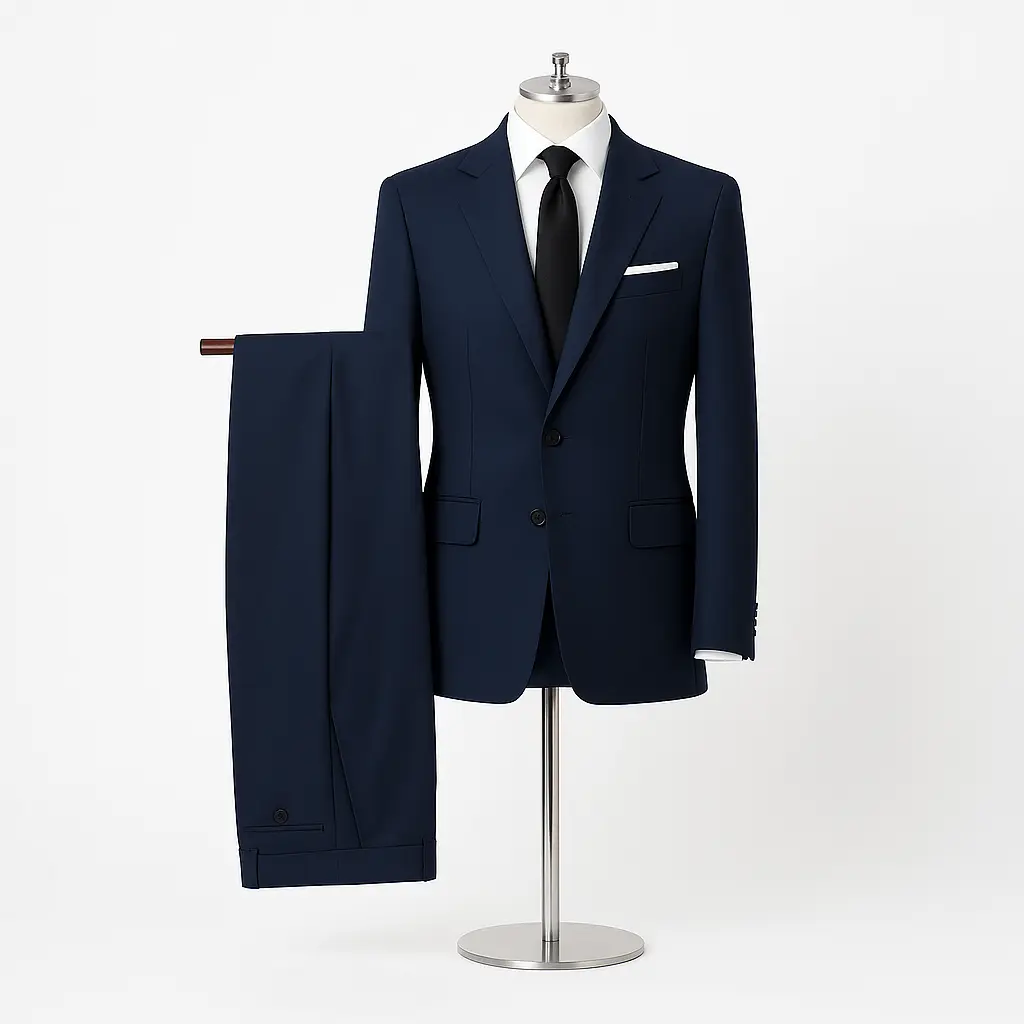
The Social Signal of Suits
Suits as Status Symbols
From Hollywood to high offices, the suit has long symbolized authority, sophistication, and influence. It’s more than fashion, it’s a marker of social standing and professional credibility. In a world where first impressions matter, suits offer a kind of silent résumé. They don’t just say, “I belong here”; they say, “I lead here.”
When someone steps into a room wearing a crisp tailored business suit, people instinctively take notice. The structure, the confidence, the polish; it all sends a signal of competence and control. That’s why many leaders, speakers, and professionals still rely on suits, even in more relaxed industries.
But this isn’t about elitism; it’s about symbolism. The suit represents effort and intention, two traits we instinctively admire. And when the cut, color, and fit align well, that admiration often turns into respect.
Group Dynamics and Authority Perception
Clothing choices can influence how people respond to you in group settings. Research shows that individuals in suits are often viewed as more persuasive, trustworthy, and capable, even before they speak. In a team meeting or negotiation, the person wearing a suit may naturally take on a leadership role or be deferred to more often.
This doesn’t mean you must wear a suit to be respected. But it does highlight how perception works. Dressing intentionally, especially in environments where expectations are high, can help you establish credibility quickly and anchor your place in the room.
The same applies in reverse: when you see someone in a well-fitted suit, your brain is more likely to associate them with competence or authority. The garment triggers a schema, a mental shortcut we all carry based on cultural norms and personal experiences. A suit can activate that schema in seconds.
Cultural Shifts and Modern Interpretations
Today, the suit isn’t confined to corner offices or ceremonial events. Thanks to evolving fashion and lifestyle preferences, suits have become more versatile, and more personal. You’ll now find them in creative spaces, tech startups, casual weddings, and even street style, worn with sneakers or open shirts.
Bespoke tailoring services and modern suit shops understand this shift. They now offer more expressive styles: shorter cuts, softer shoulders, relaxed fits, bold linings, and unconventional color palettes. This evolution makes suits feel less like uniforms and more like statements.
So what’s the social signal now? A suit says: I care. I prepared. I’m showing up as my best self. And that message cuts across industries, generations, and cultures.
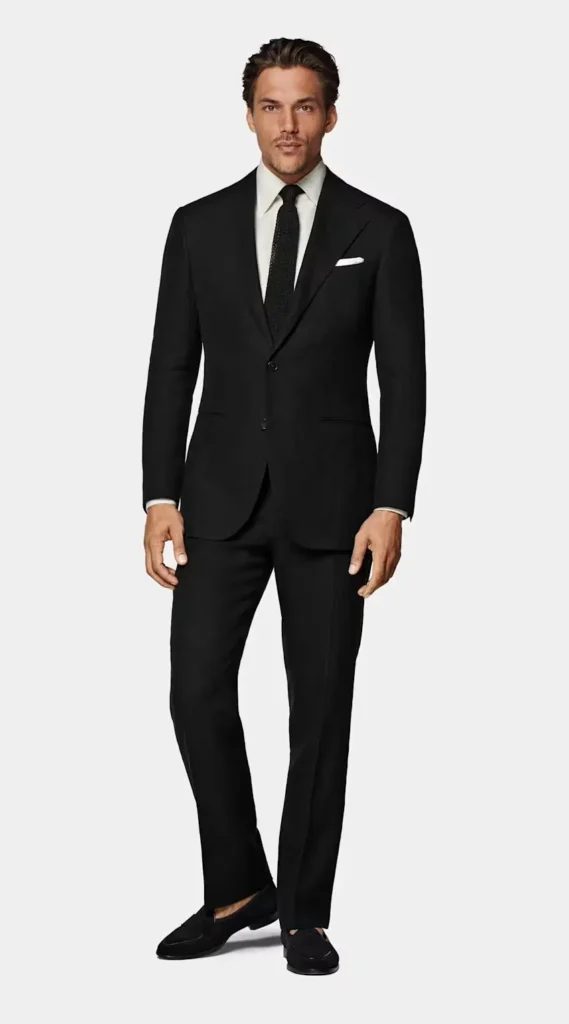
Shopping Smart: Finding the Right Suit for You
Know Your Purpose and Environment
Before you buy a suit, ask yourself two questions: What do I need this suit for? And where will I be wearing it most often? These answers will guide your decisions on color, style, and formality.
- If you need something versatile for interviews, weddings, or presentations, start with a navy or charcoal two-piece suit.
- If you’re looking for everyday wear in a professional space, you might consider building a small rotation of tailored business suits in seasonal fabrics.
- For creative roles or more social settings, a lighter color, relaxed fit, or even an unstructured blazer might serve you better.
Knowing the purpose helps you shop with intention, and avoid unnecessary or regretful purchases.
Understanding Quality and Craftsmanship
There’s a world of difference between fast fashion suits and suits built to last. Pay attention to:
- Fabric: Natural fibers like wool or wool blends offer breathability and durability. High-quality fabrics also drape better on the body.
- Stitching and construction: Hand-finished touches, canvassed construction (rather than fused), and clean buttonholes are signs of a well-made suit.
- Details: Look for subtle but telling features, like the lapel roll, lining quality, and how the sleeves and trousers are finished.
You don’t need to be an expert, but learning the basics of suit craftsmanship will help you spot real value, and protect your investment.
The Experience of the Right Store or Service
Where you buy your suit matters. A good suits store offers more than racks of jackets and trousers; it offers guidance, fitting expertise, and honest recommendations. Some even have in-house tailoring or partnerships with local fitters, which can save time and money.
If you’re new to suits or unsure about fit, find a place where you can ask questions freely. A knowledgeable salesperson or stylist can be invaluable in helping you discover your style, fit, and confidence zone.
Don’t rush the process. Try on different styles. Sit down in them. Walk around. A suit isn’t just a purchase; it’s an experience. And the right environment makes that experience empowering, not overwhelming.
Final Thoughts – Dressing Sharp with Purpose
Dressing well isn’t about impressing others; it’s about expressing who you are. A suit, when worn with intention, becomes more than just formalwear. It becomes a frame for your character, your professionalism, and your quiet strength.
There’s something powerful about stepping into a room in a tailored suit that fits just right. You walk differently. You speak with more calm assurance. You feel ready. And that energy doesn’t go unnoticed. People respond to it, sometimes consciously, sometimes instinctively, but they do respond.
Sharp dressing is a tool. Not for vanity, but for clarity. It reminds you of your value, helps you present your ideas with confidence, and aligns your outer image with your inner worth.
Either you’re wearing a bespoke ensemble or your first off-the-rack suit, the key is simple: wear it with authenticity. Let your style serve your purpose. And never underestimate the power of preparation, because when you dress with purpose, you show up ready to be seen, heard, and remembered.

